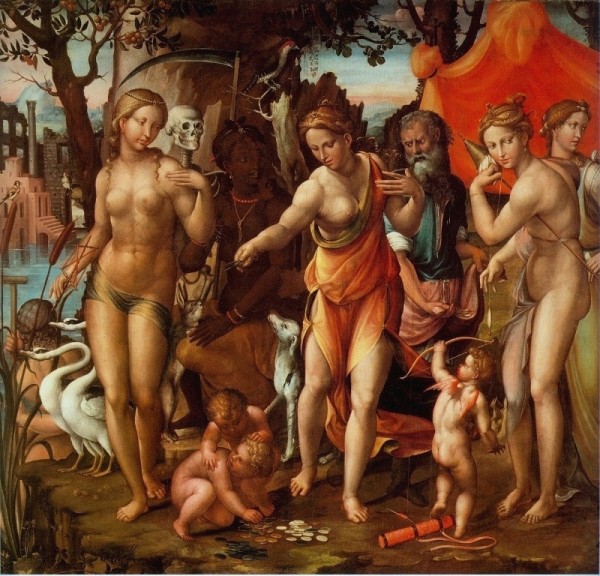Giovanni Boccaccio, Genealogy of the Pagan Gods (1.5):
“Proper names have already been discussed, so we must speak now of common names. Cicero calls the Fates the Parcae, through antiphrasis as I believe, because they would spare (parcant) no one. They admit no exceptions for any persons, and God alone is able to change their power and order. The name Fatum or Fata is, however, derived from the verb for fari [=to speak], as if the people who imposed the name on them wished to indicate that what they do is irrevocable, as if spoken or preordained by God. We can see this readily enough in the words of Boethius, and even Augustine seems to agree in his City of God. But he holds back from using the word itself, advising us that if anyone should wish to call the will or power of God by the name of Fate, they should hold their opinion and bridle their tongue.”

De nominibus propriis predictum est, de appellativis dicendum. Vocat igitur has Tullius Parcas, ut reor per antiphrasin, quia nemini parcant; nulla enim apud eas est acceptio personarum, solus deus potest pervertere earum vires et ordinem. Fatum autem aut Fata a for faris tractum nomen est, quasi velint, qui id imposuere nomen, quod ab eis agitur a deo quasi irrevocabile dictum sit seu previsum, ut per verba Boetii satis assumitur, et etiam sentire videtur Augustinus, ubi De civitate dei. Sed abhorret ipse vocabulum admonens, ut si quisquam voluntatem dei seu potestatem nomine Fati appellet, sententiam teneat, linguam coerceat.
